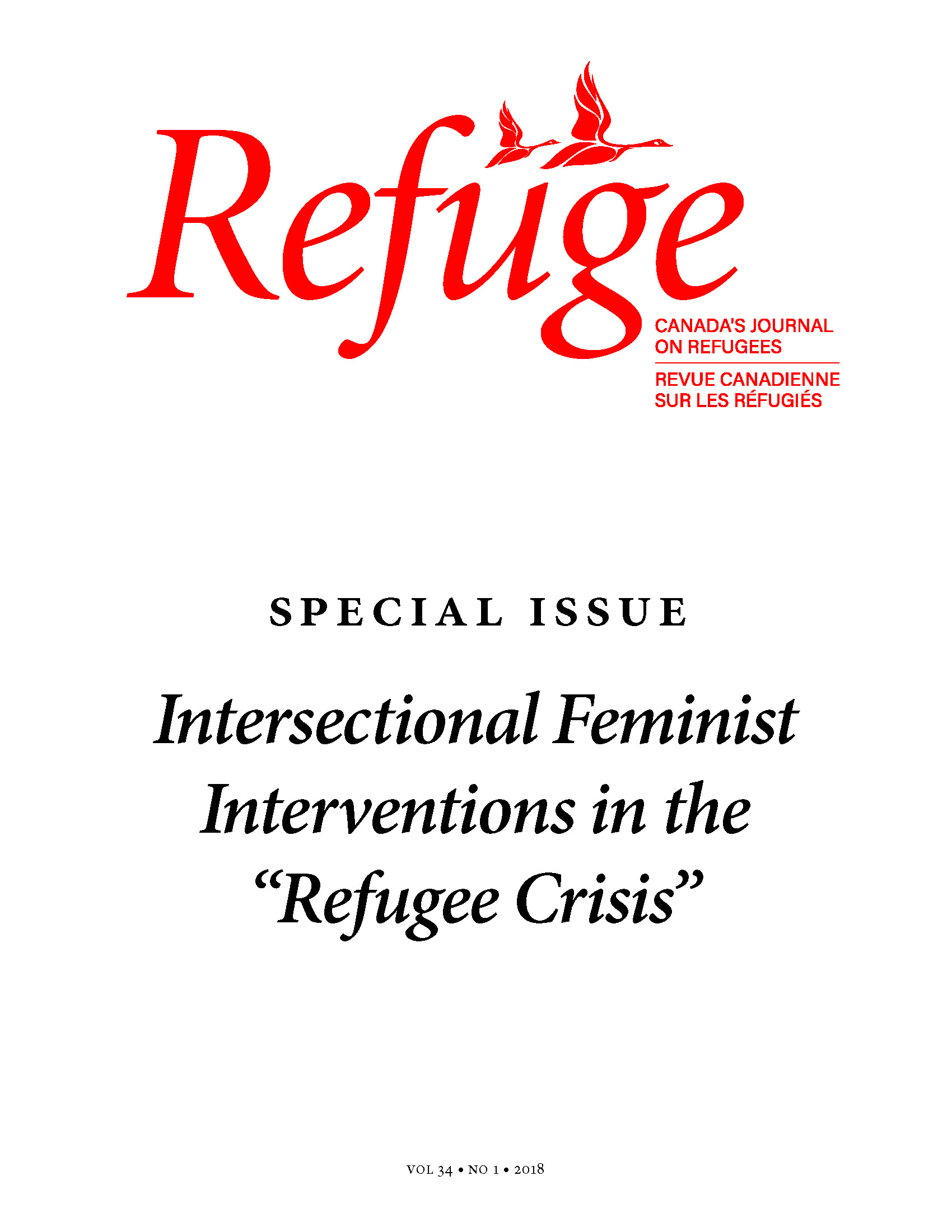Invisible Lives: Gender, Dispossession, and Precarity amongst Syrian Refugee Women in the Middle East
DOI:
https://doi.org/10.7202/1050853arKeywords:
Turkey, Middle East, Syrian refugees, refugee women, gender, dispossession, precarity, forced labour, human trafficking, forced migration, political economy of crisisAbstract
This article attends to the connections between neo-liberal and neo-developmentalist labour regimes, asylum and immigration management, and the exploitation of undocumented, refugee, and migrant women, based on the experiences of Syrian refugee women in Turkey. The concept of precarity is explored as a selectively applied strategy by states to people who lack “status” or who are unable to benefit from “membership rights.” Forced migrants, illegal migrants, and asylum seekers are directly implicated in highly precarious work experiences at the bottom end of labour markets across the Global South, becoming trapped in forced labour and human trafficking arrangements. The article establishes a link between extreme forms of migrant labour exploitation in precarious life worlds and gender-based profiling of life chances.
Metrics
Downloads
Published
How to Cite
Issue
Section
License
Copyright (c) 2018 Nergis Canefe

This work is licensed under a Creative Commons Attribution-NonCommercial 4.0 International License.
Refuge authors retain the copyright over their work, and license it to the general public under the Creative Commons Attribution-Non Commercial License International (CC BY-NC 4.0). This license allows for non-commercial use, reproduction and adaption of the material in any medium or format, with proper attribution. For general information on Creative Commons licences, visit the Creative Commons site. For the CC BY-NC 4.0 license, review the human readable summary.







